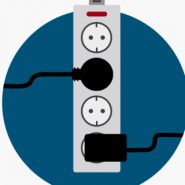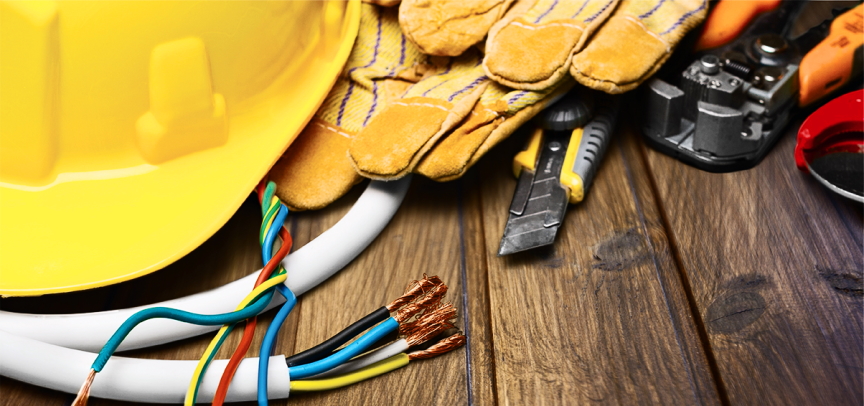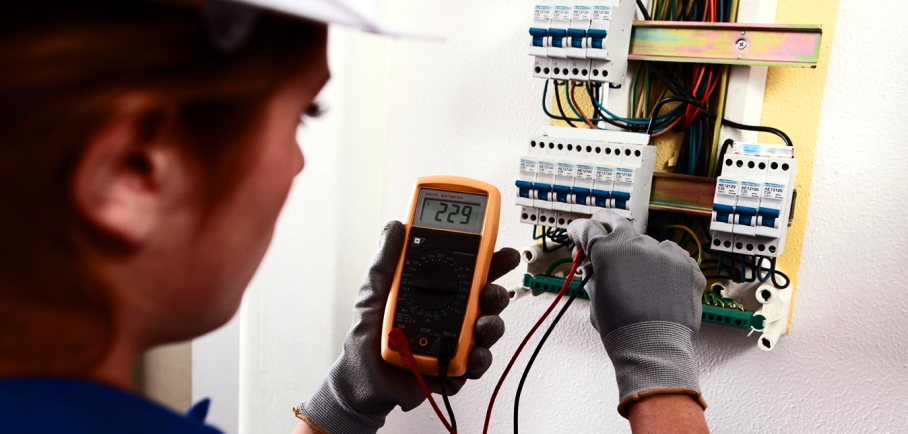
Whatever we do, our work is surrounded by electricity. Because electric power is essential for everyday lives, it’s possible for individuals to become careless and underestimate how intense and even hazardous it can be. The protection system is critical in all types of jobs, from offices to worksites. Exposed electrical use can result in burning, electrical current, accidents, flames, and even electrocution, resulting in increased expenditures and putting personnel in danger. So, here are a few recommendations for electrical safety tips for the workplace as a quick reminder.
How to Work On Improving Electrical Safety in the Workplace
Electricity is a dangerous industrial peril that can result in fatal consequences. Electrical dangers exist in almost every profession all over the world, with only a few exclusions. Following are some general safety instructions to avoid Workplace electrical hazards.

- Avoid Extension Cords: When basic safety regulations are not observed, electrical fires, shocks, and sparks frequently occur. One of them is to avoid extension cords unless necessary. Only use extended cords as a momentary measure, not as a constant outlet.
- Cords Should Be Tightly Fit: Loosely fitted cords often spark. These sparks are potentially dangerous. Try to ensure all power equipment is properly connected in; a looser fit might be dangerous. Whenever a tool’s cable is ripped, it’s heated, or it’s sparking, put it away right away and mark it “should not be used.”
- Refrain From Pulling Cords: Always pull the wire out with a plug to disconnect the power cable. The cord should not be dragged. This could cause damage to the cord, resulting in a fire or electric shock.
- A Little Know Ledge Is a Dangerous Thing: Being a jack of all is good, but it is not a good idea to play with electricity. It is advised not to fix your cord or outlet if you are not good at it.

- Use Safety Gears: Put on suitable clothing and utilize individual security appliances, such as the appropriate foot, hand, and protective gear, to guard against an urgent situation. It is essential to use the proper safety equipment when operating on direct current.
- Follow Regulations: Read the recommendations approved by the site supervisors of your workstation and the handbook for each hardware. Always become familiar with particular regulatory requirements, guidelines, prerequisites, and worksite protocols. An electrical security education equips your staff with an appropriate understanding of electricity management.

 A visit to one of our stores is a must if you are a serious tool user. Events and Demonstrations are regularly held at our stores giving you the opportunity to see the latest machinery, tools and accessories in action and even the chance to ‘Try before you buy’. Don’t miss our In-store Events
A visit to one of our stores is a must if you are a serious tool user. Events and Demonstrations are regularly held at our stores giving you the opportunity to see the latest machinery, tools and accessories in action and even the chance to ‘Try before you buy’. Don’t miss our In-store Events